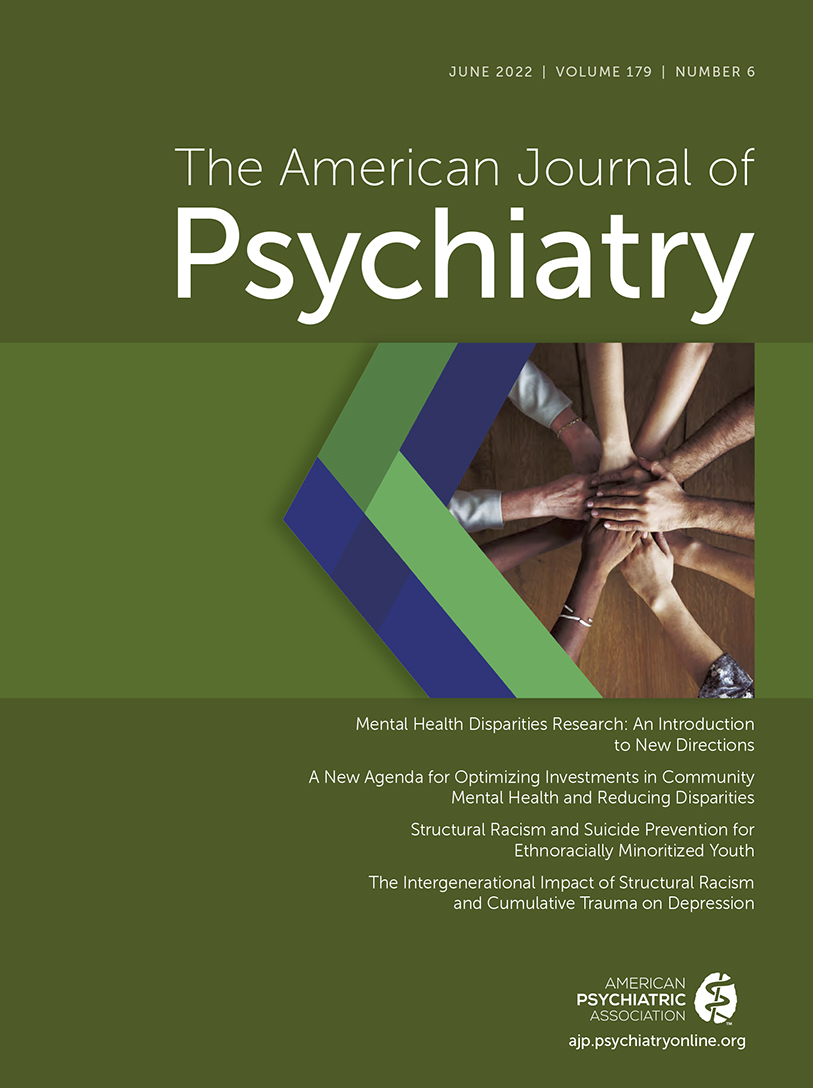Structural Racism and the Imperative to Eliminate Mental Health Disparities
There is no question that there are huge inequities in the delivery of mental health care that are related to systemic factors, and there is also no question that structural racism is a major determinant of these inequities. Individuals of color and other minoritized groups disproportionately face interpersonal, societal, and environmental stressors that increase their risk to develop psychiatric disorders, and these factors also impede access to mental health care. The impact of structural racism on mental well-being and mental illness cannot be overstated. As a field we need to commit to taking action to enforce changes at multiple levels, individual and societal, with the goal of eliminating mental health disparities.
As part of this effort, we are very pleased to present this special issue of the Journal that brings together papers that highlight the pervasive negative consequences of structural racism on mental health, the importance of community and system-wide interventions, and proposes mental health inequity research priorities. We also are very pleased to showcase the contributing authors and the concepts and strategies reviewed in their papers aimed at reducing mental health care inequities. It is our intention that this issue will motivate clinicians, educators, and researchers to take actions that will make a difference. Each one of us should be asking, “How can I use my skills, energy, and influence to help reduce the disproportionate mental suffering that is endured by minoritized individuals?”
I want to express my thanks and gratitude to Dr. Crystal Barksdale from the National Institute on Minority Health and Health Disparities for organizing and providing editorial oversight of this special issue, which reflects work that was presented at a 2020 NIMH workshop (“Identifying New Directions in Mental Health Disparities Research”) for which she served as a co-Chair.



